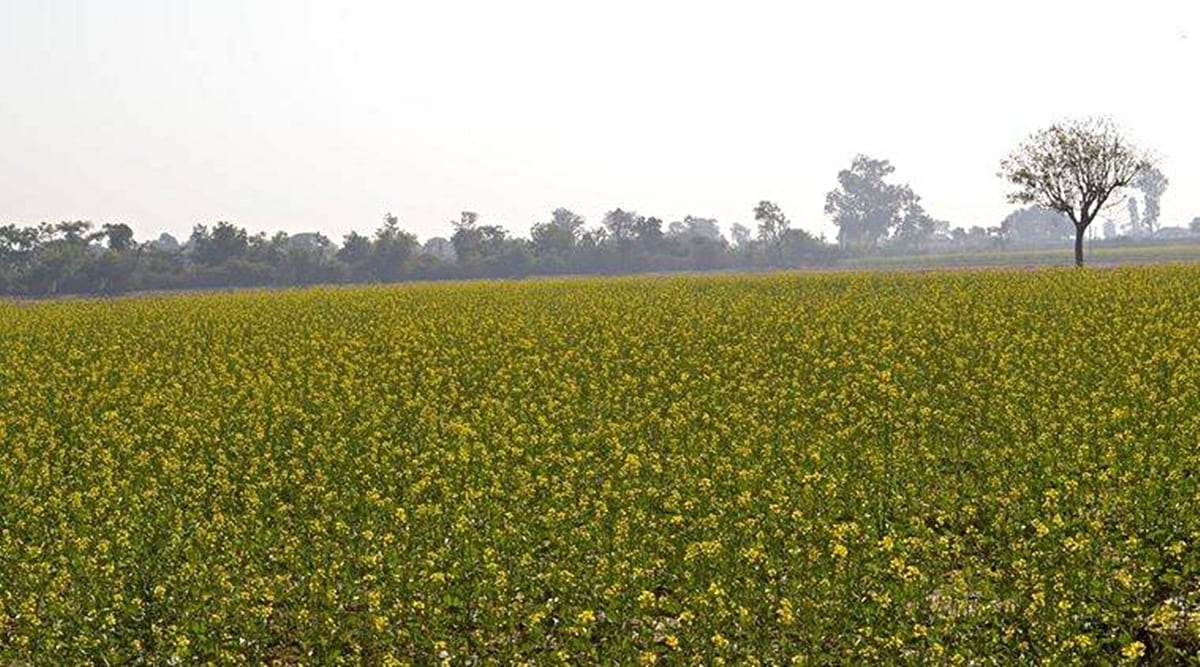Biotech regulator clears field trials of indigenously developed GM mustard
If approved, DMH-11, developed by the Centre for Genetic Manipulation of Crop Plants, would be India’s first-ever transgenic food crop
 DMH-11 contains two alien genes isolated from a soil bacterium called Bacillus amyloliquefaciens that enable breeding of high-yielding commercial mustard hybrids. (Representative image)
DMH-11 contains two alien genes isolated from a soil bacterium called Bacillus amyloliquefaciens that enable breeding of high-yielding commercial mustard hybrids. (Representative image)The Genetic Engineering Appraisal Committee (GEAC) under the Union Environment Ministry has approved seed production “prior to commercial release” of India’s first indigenously-developed transgenic hybrid mustard. It opens up possibilities for India’s first genetically modified (GM) food crop by farmers amid opposition from green groups and the so-called swadeshi lobby affiliated to the ruling party.
The country’s regulator for GM organisms, at its meeting on October 18, recommended the “environmental release” of the transgenic mustard hybrid DMH-11, developed by the Centre for Genetic Manipulation of Crop Plants (CGMCP) at Delhi University. Whether the GEAC’s green signal would also tantamount to final government clearance is, however, not clear at this point.
DMH-11 contains two alien genes isolated from a soil bacterium called Bacillus amyloliquefaciens that enable breeding of high-
yielding commercial mustard hybrids. Proponents of the GM technology-based crop say it is necessary for boosting domestic
oilseed and vegetable oil production. India annually produces only 8.5-9 million tonnes (mt) of edible oil, while importing 14-14.5 mt that entailed a record foreign exchange outgo of $18.99 billion in 2021-22 (April-March).
India has until date approved GM breeding technology only in cotton. Previous attempts at commercial release of GM brinjal were foiled by environmental activists. Even with respect to the transgenic mustard, the GEAC, following a meeting on May 11, 2017, had decided that matters related to its environmental release be “kept pending for
further review”.
It is not clear at this point whether the GEAC’s green signal amounts to final clearance by the government. But the field trials could open up the possibility of the cultivation of India's first genetically modified (GM) food crop by farmers amid opposition from green groups and the so-called swadeshi lobby.
Mustard is a largely self-pollinating crop, which makes development of hybrids (which typically yield more than normal varieties) difficult in the natural course. The CGMCP scientists, led by the former Delhi University vice-chancellor Deepak Pental, have developed what they claim is a robust and viable hybridisation system for mustard. Their GM hybrid is a product of crossing two plants containing alien ‘barnase’ and ‘barstar’ genes derived from a soil bacterium.
“I am happy at the GEAC decision. We have enough seeds for multiplication,” Pental told The Indian Express. DMH-11 is claimed to produce 25-30 per cent more grain/seed than the existing high-yielding mustard varieties. But given the limited time – mustard is generally sown by the end of October – it remains to be seen if any planting for seed multiplication is possible in the current rabi season.
The GEAC recommended the “environmental release” of DMH-11 for seed production as well as of its parental lines for developing new hybrids based on the same GM technology. “We are open to sharing our parental lines to other breeders who may develop their own hybrids that can give higher yields than DMH-11,” Pental added.
The GEAC also recommended conducting of field demonstration studies with respect to the effect of GM mustard on honey bees and other pollinators, as a “precautionary mechanism”. It quoted a report by an expert committee under a department of biotechnology scientist Sanjay Kumar Mishra, saying that globally available scientific evidence made it “unlikely that the bar, barnase and barstar system will pose an adverse impact on honey bees and other pollinators”.








